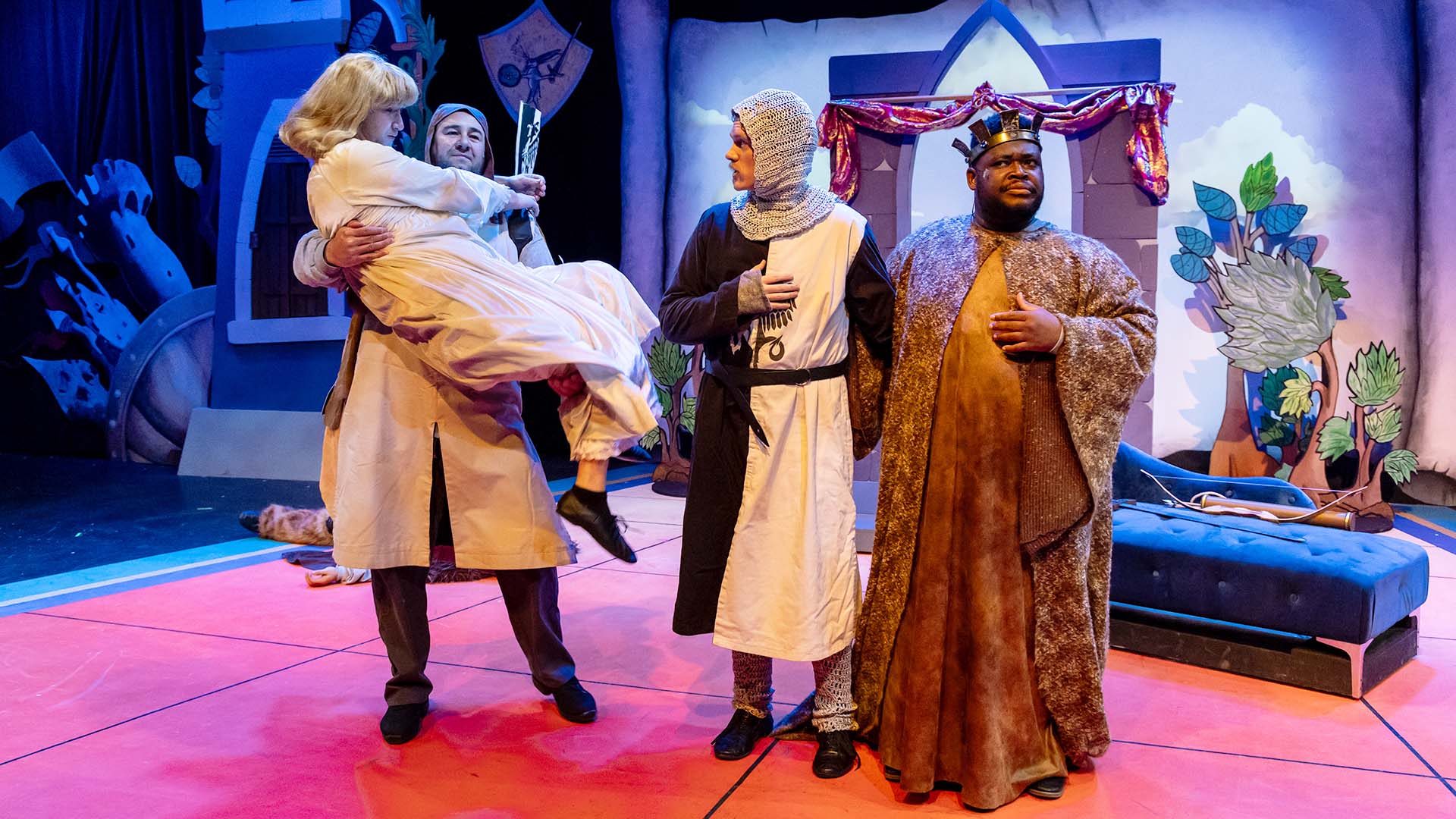6 women-led films to watch this summer
Fewer movies featured female protagonists last year. Here are six that buck the trend.

The girlfriend. The trophy. The victim. The final girl.
For decades, women in movies have not only been largely given supporting roles; they have been ascribed a narrowly defined number of generic roles. According to a report from the Center for the Study of Women in Television and Film, in 2023 women had speaking roles in only 35% of U.S. films, down from 37% in 2022. Likewise, the number of films with women protagonists declined from 33% in 2022 to 28% in 2023.
However, Vincent Piturro, Ph.D., professor of Film and Media Studies at Metropolitan State University of Denver, is hopeful that the tide may be turning.
“Over the past three years at the Berlin Film Festival, I have noticed a growing global trend toward meaningful films either about women or made by women,” Piturro said. “In this respect, I think American filmmakers are still a bit behind the curve, to be honest.”
Yet Piturro does see some promising signs. He recommended six new films, including four made in the U.S., that feature three-dimensional, convincing portrayals of their women protagonists.
‘Janet Planet’
Set in 1991 rural Massachusetts, this drama follows an 11-year-old girl as she spends the summer with her dysfunctional single mom. The blurb describes it as a film about “a daughter falling out of love with her mother,” and there’s something just so heartbreaking about that premise.
By telling such a human and nuanced story, playwright (and debut film director) Annie Baker captures the very real difficulties of co-dependent and sometimes suffocatingly close family relationships. It’s reminiscent of “Lady Bird,” the directorial debut of Greta Gerwig, who has since become a pioneer in making compelling films about women. While the other U.S. movies on this list are comedies or genre films, “Janet Planet” plays it straight, and its positive reception demonstrates a growing appetite for realistic and progressive depictions of female characters.
RELATED: Forgotten film rises from the dead
‘MaXXXine’
The “final girl” trope of the slasher movie genre is not especially progressive. In these films, the last girl to survive the carnage and face the killer is often bland, squeaky clean and defined almost exclusively by their relationship to the killer. They are as much murderer’s menu items as characters.
But the “X” trilogy of movies (this release forms the final chapter) has given audiences a new and not-so-innocent star character, who slyly puts a female-forward twist on the usual formula. Far from being a virginal ingenue, Maxine “Max” Minx (played by Mia Goth) kicks off this trilogy series working in adult films. She’s ambitious and tough with relatable flaws and is not afraid to kill to survive. And the “X” trilogy’s success speaks volumes about how ready audiences were to see a recognizable woman replacing the tired old archetype.
‘From Hilde, With Love’
Countless films have focused on the Nazi-resistance movement during the Second World War, but not many are like this one. The main character, Hilde Coppi — a multitasker if ever there were one — manages to join an anti-Nazi group, fall in love and become pregnant, all while undertaking perilous work in Berlin. Ultimately caught by the Gestapo (while eight months pregnant), she’s thrown into prison and sentenced to death, and the story develops further from there.
But what really stands out is that Hilde is categorically shown to be the strongest and most resilient member of her resistance group, a position almost universally held by men in these kinds of films. What’s more, the story focuses not only on Hilde as a resistance fighter but also as a pregnant woman and then mother of a young child while in prison. It’s an arresting study of a multifaceted character who exists entirely outside the usual tropes of the wartime-resistance movie genre.
RELATED: The best movies at the Denver Film Festival
‘Fly Me to the Moon’
This is basically a grown-up and more intelligent version of a rom-com that puts a woman at the center of the action. Set against the backdrop of the historic Apollo 11 moon landing, it stars Scarlett Johansson as a marketing guru who clashes with (and occasionally bats eyelashes at) a NASA pilot played by Channing Tatum, as the launch countdown looms.
Interestingly, the movie goes back in history to re-present a familiar story, only from a less-familiar point of view. The fact is, if this film had been made anywhere between the ’60s and the ’90s, it likely would have been a man’s story and Johansson would have been relegated to an arm-candy role. More modern films are revisiting past eras and retelling those old stories in a more representative and accurate way.
‘Maria’s Silence’
This wrenching historical drama tells the true story of a Latvian film star, Maria Leiko, who in 1937 joined a theatre troupe in Russia with disastrous consequences. Arrested on trumped-up charges, she was tortured and ultimately executed by the totalitarian regime. The film accurately and graphically depicts what happened to Leiko and thousands of other women during that period. Frankly, some scenes are hard to watch. But this is not gratuitous, comic-book violence. Rather, it is an honest account of a tragic story, which refuses to protect the sensibilities of the viewer.
When someone asked the director, Dāvis Sīmanis, why he had produced such brutal and upsetting scenes, he said, “Because this is what happened.” And I think he’s right. If we can’t understand the past, then how can we be expected to assimilate the present? With a war raging in Ukraine, I’d argue audiences need to see films like “Maria’s Silence.” After all, when authoritarian regimes take power, women’s rights are generally among the first things to go, so there’s a real value in seeing the devastating cost.
RELATED: The best movies you’ll ever read
‘Thelma’
Much has been written about the lack of film roles for women over age 40. But at 94 years old, actress June Squibb is helping to redress the balance with her first leading role in a seven-decades-long career. The plot is simple: Duped by a phone scammer, the eponymous Thelma sets out on her motor scooter to find the culprit and reclaim her money.
But the central conceit of this infectiously funny movie is genius. Director Josh Margolin shoots the whole film as an action-movie spoof, with particular nods to the “Mission: Impossible” franchise. As the nonagenarian star hilariously weaves in and out of danger, wisecracking all the way (and charming audiences and critics alike), she becomes the driving force of a bona fide crowd-pleaser.
And in so doing, Squibb demonstrates a point that the broader film industry would do well to recognize. When given even a fraction of the roles and opportunities afforded to their male counterparts, women actors regularly excel on camera.







